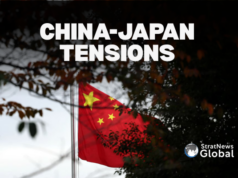Donald Trump’s kid gloves on trade came off some time ago; that of the BRICS grouping may be coming off soon if Brazil’s President Lula da Silva has his way.
He’s planning to dial Prime Minister Modi, China’s Xi Jinping and other BRICS leaders “to discuss how each one is doing in this situation, what the implications are for each country, so we can make a decision.”
He reminded Trump that the BRICS comprises 10 of the world’s 20 biggest economies, hinting they are not without clout and can make things difficult for the US. Does that suggest a new world order is quietly taking shape with the BRICS positioning itself in opposition to the US?
From India’s point of view, that would be unacceptable.
“Deep trade linkages with the West—especially with the US—remain vital for both India and China,” argues Pankaj Saran, former deputy national security adviser and ambassador to Russia. “The notion of an economic firewall is unrealistic.”
India also knows that the biggest economy in the BRICS is China. The demand for de-dollarization finds strong backing among the mandarins in Beijing, who see the yuan as the grand replacement of the dollar. At all costs, India does not want that to happen. The point is why replace dependence on the dollar to dependence on the currency of a country inimical to India.
So India strenuously opposes any move within the BRICS to “de-dollarize” and publicly holds the view that moving away from the US dollar is not on the agenda. It is also intended to soften the view that BRICS is inherently anti-West, given the presence of China and Russia.
“In my view, BRICS as a group will evolve into a strong entity from solutions,” says Dammu Ravi, secretary handling economic relations in the External Affairs Ministry. “Big countries within the bloc will be able to find a balance and ensure that it doesn’t go anti-West.”
Yet as Pankaj Saran acknowledges, BRICS originates from the failure of the West. The problem is, as China grows to become a dominant force in the grouping, how will it leverage its economic strength to promote the values that BRICS stands for?
What of India? Can it maintain strategic balance within the group at a time when its own interests appear at odds with Washington and Beijing?
These questions are crucial for India as it moves to assume the presidency of the BRICS next year, which ironically, coincides with the US assuming the chairmanship of the G20.
If Trump does not turn up for the G20 in South Africa, as he hinted recently, rest assured he will be there “in spirit” and through the voice of his chosen representative, who is expected to focus on “hard economics”. As for India, it has already signalled its plan to focus on digital public infrastructure and renewable energy, both key issues for the Global South and, of course, BRICS.




